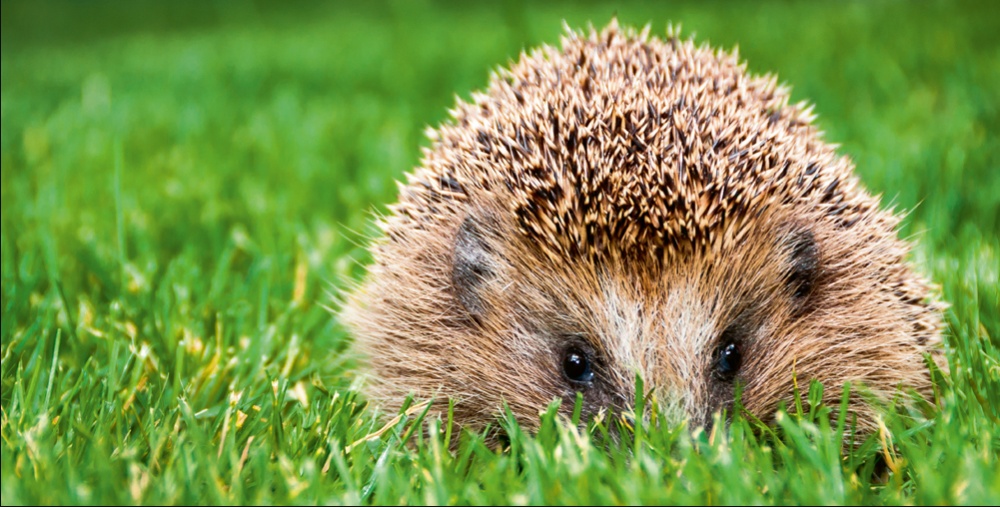The Gardeners Friend: Hedgehogs

Prickly little creatures aren’t they, but next time you find one in your garden it might just need your help. Garden gloves at the ready!
‘At the moment, we have 80 hedgehogs here and about 40 to 50 hedgehogs out in foster care,’ says Carole, who runs the trust from her home in Longframlington. Hedgehogs can go into foster care? Apparently so. ‘People come to the Northumbrian Hedgehog Rescue Trust to be trained to care for hedgehogs in the best way. Sometimes they then decide they would like to take care of them on their own property over the winter for us.’ It means that Carole has never had to turn away a hedgehog in need, and more hedgehogs survive the harsh winters as a result.
With the British hedgehog population depleting from 30 million hedgehogs in the 1950s to less than one million now, it’s important to take care of these prickly but cute animals. At the Northumbrian Hedgehog Rescue Trust, Carole and a pool of volunteers care for hedgehogs that are underweight, injured or sick. They clean their accommodation, replenish food and water, and carry out medical examinations to ensure the hedgehogs are healthy and growing stronger.
Many of the hedgehogs at the Rescue Trust are brought in by members of the public and Carole has plenty of advice for anyone who finds one. ‘If a hedgehog is out during the day, it tends to need help. People say, “But it looks fine.” Just because it looks fine doesn’t mean that it always is. If you get the opportunity, do please bring it in. We’ll check it over just to make sure.’
Carole also encourages members of the public to feed hedgehogs. ‘They will eat most foods. They are omnivores, just as we are. We always recommend that people put out cat or dog food, but the meat variety. Hedgehogs generally prefer chicken in jelly. If you don’t have cat or dog food, boiled eggs, sweet biscuits, digestive biscuits even, will all suffice. Anything just to give the hedgehog some nutrition until you can bring it here to us, and we’ll take over its care.’
However, a hedgehog should never be given two things: cows’ milk and fish. ‘Cows’ milk gives them gastroenteritis,’ explains Carole. ‘Water is fine, but if people feel like they want to give them milk, goats’ milk’s ok, but never ever cows’ milk.’
When someone brings a hedgehog to the Trust, they are encouraged to give it a name. The more unusual the better. ‘We like something that’s a bit different,’ says Carole. ‘Everyone comes in and says “Henry”. We had one family that brought us a lot of hedgehogs and their names had a theme – they were all composers! We had one called Mozart, and another called Chopin. It was fabulous.’
There are two hedgehogs, Tughall and Albie, that Carole will never forget. ‘We had two albino hedgehogs,’ says Carole. ‘It’s very rare to get one, and we had two!’ Tughall was found first, in a storm drain in Northumberland, and caused quite a stir with the press. ‘Everyone wanted to photograph Tughall,’ laughs Carole. It wasn’t long after the Trust got Tughall that Albie arrived. However, they’ve now been taken to a safe, protected garden. ‘We didn’t want to release them where the public might think, “Oh, aren’t they lovely, I would like them in my garden,” and walk away with them,’ laughs Carole.
Hedgehogs are never kept at the Northumbrian Hedgehog Rescue Trust longer than they need to be. The Trust’s purpose of keeping a hedgehog is to rehabilitate it and eventually release it back into the wild. ‘I would say roughly 80 percent of our hedgehogs go back into the wild,’ states Carole. For those that can’t, they go to a safe garden. ‘We would never keep them here in captivity, that would be just like being in prison.’
Entirely run by volunteers, any support given to the Northumbrian Hedgehog Rescue Trust is gratefully received. Whether this be monetary, food or bedding donations, volunteering to work at the Trust or fostering a hedgehog. ‘We’ve never yet said no to a hedgehog, and I never want to,’ says Carole. ‘If a hedgehog is in need, we’re here to help.’
Northumbrian Hedgehog Rescue Trust, Longframlington www.hedgehogs-northumbria.org.uk
Know Your Facts
- Hedgehogs hibernate during the coldest months of the year between November and March. Their blood turns cold and they survive on body fats built up through the year.
- Like most nocturnal animals, they have poor eyesight but excellent hearing and sense of smell. They forage for food from dusk till dawn and then retreat to a nearby nest to sleep during the day.
- Hedgehogs prefer to live in hedgerows (that’s how they got their name), but adapt to rural and urban environments and can be found in bushes, thick shrubs and gardens.
- What’s in a name? Baby hedgehogs are called hoglets. Female hedgehogs are called sows. Male hedgehogs are called boars. They are also fondly called the gardener’s friend for eating so many pests such as snails, mice and slugs.
- Most hedgehogs are born in June or July in Britain, with an average litter size of four or five hoglets. They remain with their mothers for only four to seven weeks before heading out on their own.
Find a handy guide on how to care for our pickly friends – from what to feed them to how to protect their habitat – here.
First published: January 2015



